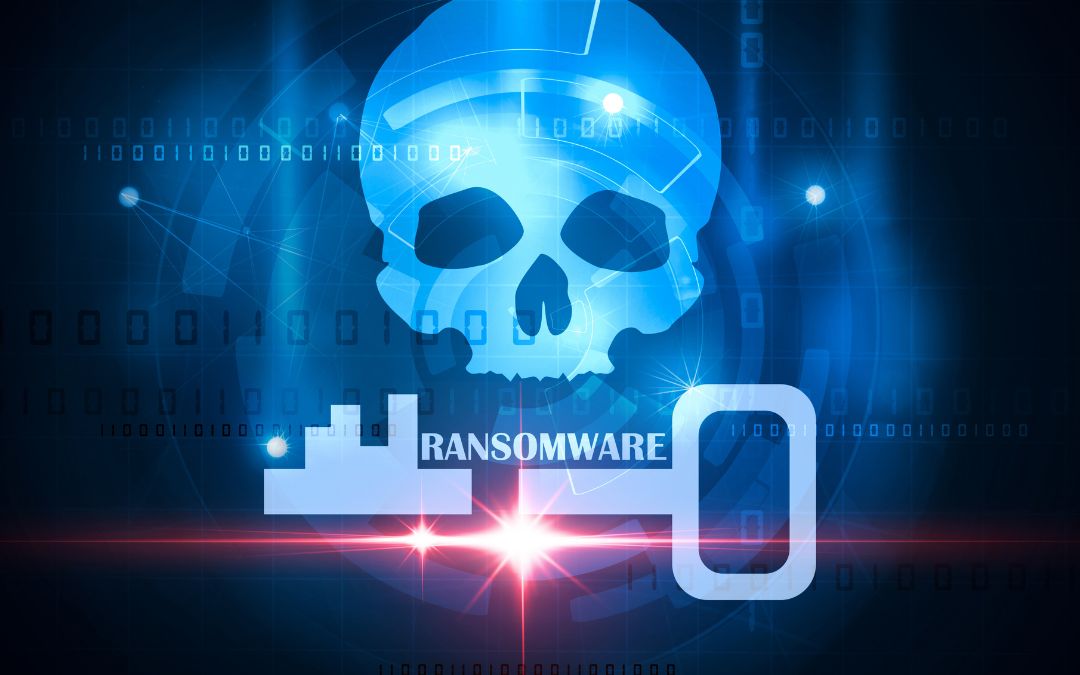
In today’s increasingly digital world, cyber threats have become a major concern for businesses of all sizes. Cybercriminals are always on the lookout for their next target and the consequences can be disastrous. However, for small businesses, the stakes are particularly high as they often lack the resources and expertise to effectively protect themselves against cyber-attacks. This is why cybersecurity must be prioritized even during a cost-of-living crisis where the global economy is still recovering from Covid-19 pandemic. In short, it is essential to ensure the long-term success and survival of small businesses.
The Cost of Cybercrime
According to a report by the UK government, cybercrime costs UK businesses an estimated £21 billion per year. As there are approximately six million businesses in the UK, this equates to an average loss of £3,500 per business. Of course, this is not the way we should look at this data. If you’re lucky and your business is not a victim of a cybercrime then you have effectively saved this amount, however, if you have suffered an attack, your losses could be much higher than the £3,500 average. It is increasingly common for businesses to lose tens of thousands because of an attack and it is not unheard of that it leads to a company closing altogether.
Even during the current cost-of-living crisis, perhaps especially now when times are tough, there is an urgent need for businesses to prioritize cybersecurity and protect themselves against threats.
Here are some key points to consider:

Small businesses must prioritise cyber security
Small businesses are prime targets for cyber-attacks as they often have weaker security measures and valuable data which can be exploited by hackers. Prioritizing cybersecurity can help prevent data breaches, protect customer information, and maintain the trust and confidence of clients. A small investment could save your thousands.
Cybersecurity for Small Businesses: Realizing the Threats and Consequences
It is important to understand the wide range of potential cyber threats facing small businesses. These include phishing attacks, ransomware, and data breaches, which come with disastrous consequences, from reputational damage and legal liabilities to financial losses, bankruptcy, and business closure. It doesn’t get any more serious, which is why it’s so vital to act now and speak to an IT expert who can help you protect your business: Click here to talk to us.
Effective Cybersecurity Practices for Small Businesses
Implementing effective cybersecurity practices, such as strong passwords, followed by introducing password managers as a company-wide solution, is a good starting point. The introduction of multifactor authentication for all online services, as well as implementing hardware keys, is also recommended.
Next, make sure you use reputable antivirus software with daily updates and regular backups, plus updates for operating systems and all software used on desktop computers, laptops, and mobile devices such as smartphones and tablets.
It is worth remembering that any ransomware attacks or cyber intrusion starts by targeting the weakest link in each business, and those will frequently be outdated and forgotten devices connected to your network, such as an old Windows XP that is used as a print server, or software that has not updated in years.
Another good safeguarding measure we would recommend is applying for a Cyber Essential Certificate or Cyber Essentials Plus– Click here
Although this certification does not directly provide an instant solution, it brings cybersecurity to the attention of business management and encourages a planned response instead of ad-hoc approach to attacks.
It is always best to prevent a problem before it happens rather than waiting until after it does and having to deal with the consequences. This certification therefore can help mitigate the risk of cyber-attacks and ensure the safety and security of data, while offering businesses a potential strategic advantage. It could also be a reputational boost as businesses can display on their website that they have applied and completed the certification process.
Cost-Benefit Analysis of Cybersecurity Initiatives
As we said above, sometimes you must spend a little to save a lot. We appreciate budgets are always tight for small businesses, even more so in a cost-of-living crisis. However, small businesses must consider the cost-benefit analysis of investing in cybersecurity initiatives, such as IT support or managed IT services, and the potential return on investment (ROI) in terms of avoiding costly cyber-attacks. If you bear in mind that the average cost of cyber intrusions is around £3,500 per business each year, I would argue that as a base number, we should invest 10x that amount to protect ourselves. Of course, many SMBs will not be able to afford £35,000 a year on cyber security. Even larger businesses with 50+ employees would find such an amount prohibitive, so what is the answer?
Thankfully, there is an answer, and we’re here to share it with you. Read on to find out more.
Training Employees to Improve Cybersecurity in Small Businesses
One of the most important parts of any cyber security operation is employee training as many attacks are the result of human error. Think of all the phishing attempts that try to convince users to click on links and provide criminals with credentials that allow them to log on to your online services such as Office 365 or Google Workspace. This of course can lead to serious ransomware attacks.

A few years ago, one of our customers received a training brochure about phishing, and that same day spotted signs of an attack. However, he made the mistake of assuming this could wait until the following day. Unfortunately, this was not the case, and they suffered a massive loss. For this reason, technological solutions for cyber security tend to be proactive to prevent problems being ignored. The latter is exactly what criminals are counting on as it gives them the time and opportunity to cause maximum damage to an organisation. So please remember ransomware attacks do their worst when people ignore the red flags.
Providing employees with training can help prevent cyber threats before they happen and ensure the security of sensitive data. It’s also worth noting that cyber security training is not very difficult or overly technical and often focuses on increasing users’ awareness of typical scenarios and red flags.
Allowing staff to watch videos of typical attacks removes the layer of abstraction and thus provides the user with a chance to spot the patterns of cyber-attack.
Many reputable IT training providers can facilitate this. For example, you could use the following training from ESET – Click here.
Please note this is NOT an affiliate link.
Tips for Meeting Cybersecurity Laws and Regulations as a Small Company
Cybersecurity is not just about protecting yourself from attacks, but also about meeting legal standards.
Small businesses need to be aware of the latest cybersecurity laws and regulations and ensure compliance, such as the General Data Protection Regulation (GDPR) in the EU and the California Consumer Privacy Act (CCPA) in the US. How can they do this?
- Set up regular staff training and test how users react to phishing attempts via email, messages, or calls.
- Talk to colleagues if you feel someone is being pressurised to do something out of their comfort zone that could be a risk. For example, sending a password via text etc.
- Use complex passwords with at least four types of blocks (lower case, upper case, numbers, special characters) and with a minimum of 2-3 characters per block. Therefore, a minimum length of password would be 8-12 characters.
- Avoid using names, surnames, the current or previous year, or company names as part of your business passwords. Alongside this, avoid any other easily identifiable characteristics such as your favourite football team.
- Use password managers company wide.
- Use Multifactor Authentication on all online accounts.
- Use hardware keys to further increase security.
- Update your software (operating system, and all programs) regularly.
- Remove outdated hardware such as old computers and disconnect from your networks.
- Use tools such as Microsoft Intune to manage your mobile devices as well as all laptops/desktops.
- Encrypt data on your computers.
- Obtain certification such as Cyber Essentials or Cyber Essentials Plus
- Advertise your cybersecurity measures to your customers on your website showing that you are proactive as this will force you to be accountable.
- Be consistent with your Active Cyber Defence – it is better to do a little every week than a lot once a year.
- Work with a specialist IT services company who can tell you exactly what certification and accreditation you need, help you attain it, and train your team on the laws and regulations you need to follow. Click here to see how we can help!
A Smart Method for Reducing Cybersecurity Risks to Small Businesses
Adopting a risk-based approach to cybersecurity can help small businesses identify and prioritize potential risks and vulnerabilities, while taking the appropriate measures to reduce their exposure to cyber threats. Being smart does not require a lot from business users. There are many simple steps each business can take. Many managers can be proactive and lead the change by doing the following:
1. Removing outdated equipment
2. Promoting IT safe practices such as not allowing the sharing of passwords.
3. Prompting users to run Cyber Security Awareness training.
4. Set up ongoing relationships with Managed IT service providers who are competent and proactive at cybersecurity or contract a specialist team to perform various tests and mock attacks. Our friendly experts can help point you in the right direction if you need help with this so don’t hesitate to contact us – Click here.
Threats to Small Businesses and New Technology for Defence
As Statista shows, the number of internet-connected devices worldwide was estimated to be around 22 billion in 2018. By 2030 – just seven years’ time – it is projected to grow to more than 50 billion.
Unfortunately, more devices will mean an even greater threat from cyber-crime. In this country, and around the world, there is a shortage of skilled IT experts to help deal with this volume. As a result, cyber operations will have to adapt and change and get smarter rather than bigger. There will need to be an increase in investment from the business world but also from governments with the introduction of new National Cyber Security Centres.
Small businesses must also stay informed about emerging cyber threats, as well as new technology solutions, such as artificial intelligence (AI) and machine learning, for defending against cyber-attacks. One of the most interesting new avenues will be the introduction of AI and how it can become part of an Active Cyber Defence. One example of this technology is Darktrace.
Implications of Ignoring Cybersecurity: A Dangerous Bet
Ignoring cybersecurity threats can be costly and dangerous for small businesses, leading to lost revenue, damaged reputation, and even business failure.
I understand that scare tactics are bad business and should be avoided. However, with cyber security many businesses have only one chance to get it right. If cyber intrusions are not detected quickly this can have devastating effects on any business. You don’t have to look far for examples of huge businesses suffering serious losses to see how it can happen to anyone, such as the recent cyber attack on Royal Mail which cost the company £65.7 Million.
Any business that gets Active Cyber Defence for their business will gain a competitive advantage as more customers B2C and B2B will be more reluctant to trust their confidential information and money in hands of businesses. Want to find out more about Active Cyber Defence? Contact our friendly team of managed IT support in London today and we can talk you through it. Click here.
Professional Advice on Tackling Cybersecurity Threats
Seeking professional advice from cybersecurity experts who specialise in IT support in London can help small businesses develop effective cybersecurity strategies and ensure the security and resilience of their IT infrastructure. Take a look at the range of services we offer at Operum.Tech to find out more about the different ways we can help your business protect itself. Jump to our website to find out more here.
Operum.Tech is here to help
Our team has spent more than 25 years being proactive in the field of cyber security, and our approach is based around the principle of security first. This means our team creates solutions for our customers with the first step being security. Cyber security is not an afterthought. The dangers are real, the consequences are serious, the best protection is a proactive defence.
Alongside these measures, we offer a range of IT support services, including managed IT support in London and cybersecurity solutions, to help small businesses protect their data and stay secure in the face of cyber threats.
Small businesses must prioritize cyber security to ensure their long-term success and survival, even amid the cost-of-living crisis and the after-effects of the Covid-19 pandemic. By understanding the threats and consequences of cyber-attacks, adopting effective cybersecurity practices, and seeking professional advice and support from experts, small businesses can protect their data and maintain the trust of their clients. If you found the above blog useful, please subscribe to our newsletter below.
Sign up below to join the Operum newsletter



